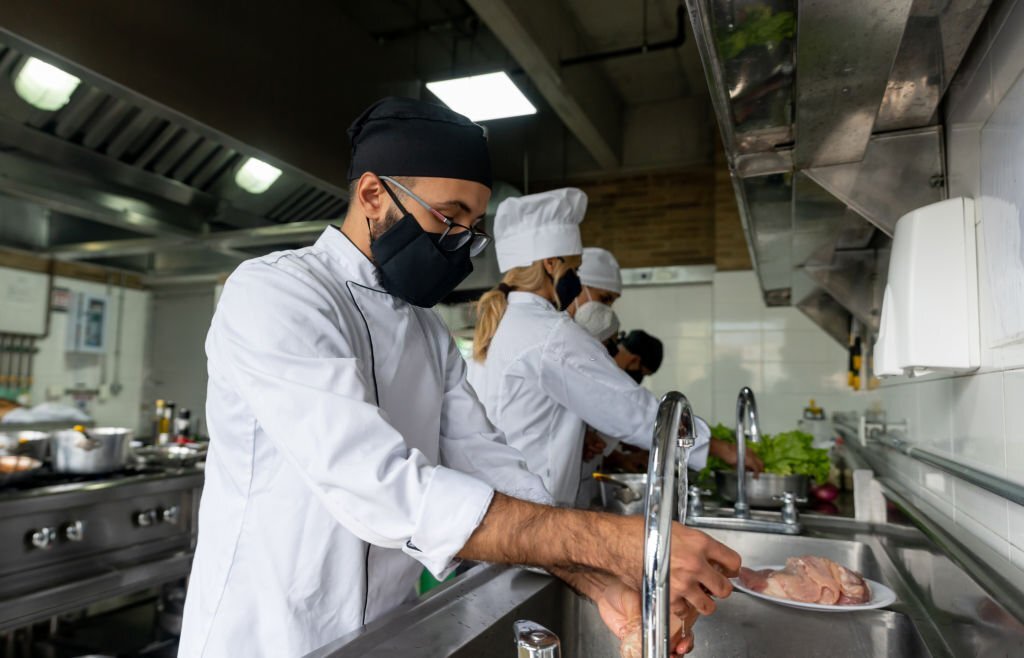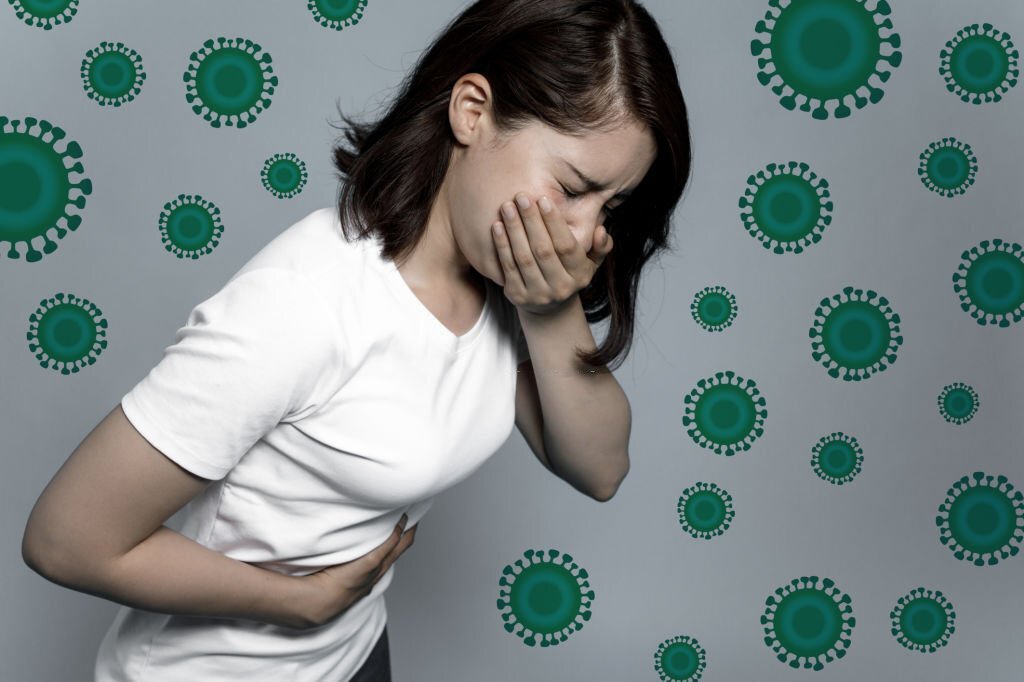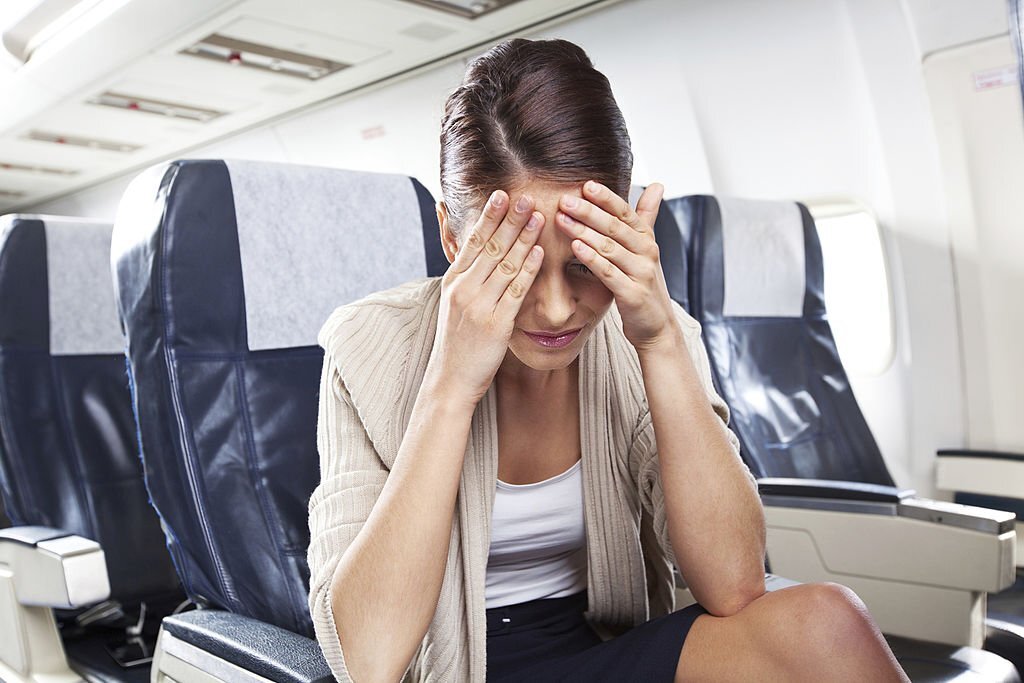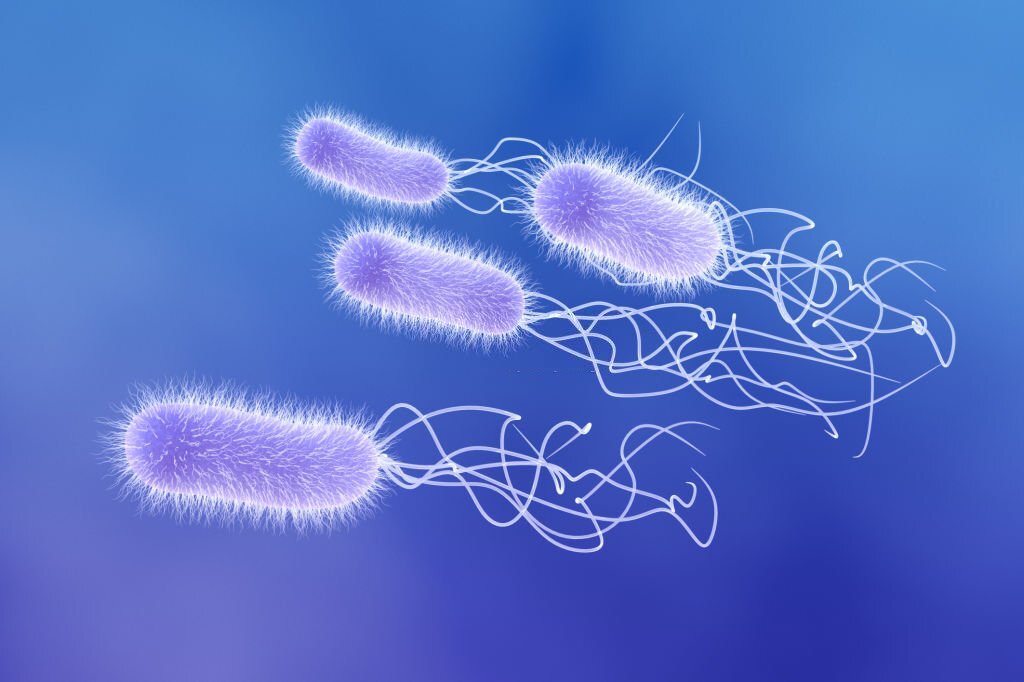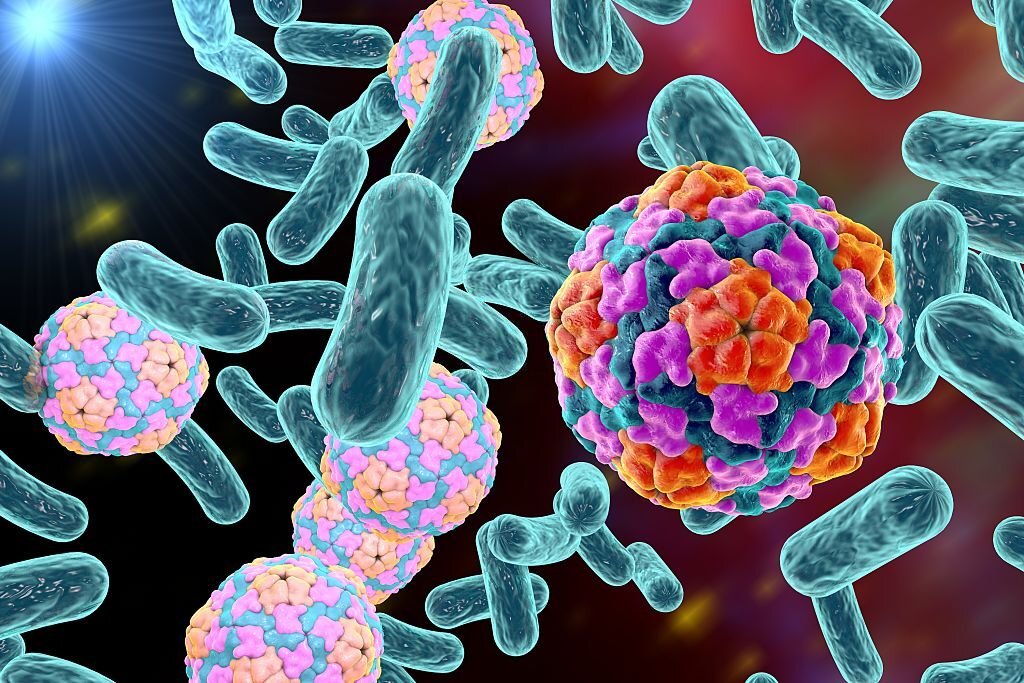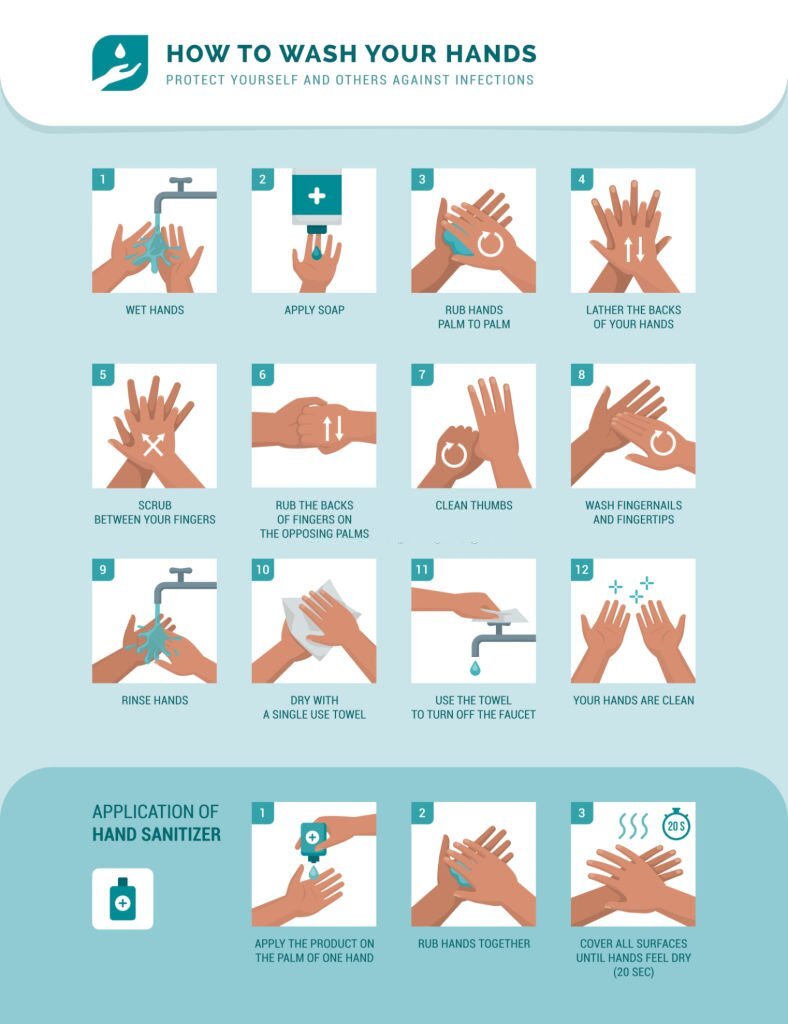Making delicious food may seem like the most important aspect of your job as a food handler. But you’d be mistaken.
As a food handler, making sure that you do not make your customers sick is the most essential aspect of your job.
Proper hand washing is the quickest and most required measure to ensure food safety.
This article provides food handlers with an on why proper hand washing is important, when it’s necessary, and other frequently asked questions.
Why Should You Wash Your Hands?
We learn the importance of hand washing early in life. Moreover, COVID-19 has shown us its value of it.
You might not understand how it applies to the food sector, though. As a person who handles food, you are preventing food contamination by washing your hands.
Neglecting to wash one’s hands properly allows dangerous pathogens and bacteria like salmonella,e.coil, and viruses to flourish.
These germs and pathogens can then cause food poisoning, which can result in life-threatening infections.
When must Food Handlers Wash Their Hands?
When aren’t the most crucial moments to wash your hands? would be a simpler question to answer.
Before starting work and again before handling any cooked or ready-to-eat food, all food handlers should wash their hands in warm, soapy water.
It’s imperative to wash your hands once more after handling or preparing raw food. Don’t forget to properly store that food, too!
It’s crucial to wash your hands properly before doing any cleaning, handling any waste, and using the restroom.
We learned the value of cleaning our hands after coughing, sneezing, and blowing our noses during COVID-19.
Make sure to wash your hands before returning to work, as well as after consuming alcohol or smoking, if you are switching from handling food to handling money.
The best way to wash your hand as a food handler
There is a commonly accepted method for washing your hands as a food handler to ensure proper hand cleanliness.
Simply stick to these 5 steps. There is no reason not to do it since it should only take you 20 seconds.
- Wet your wrists, arms, and hands.
Apply the soap. - For 10 to 15 seconds, scrub your hands, wrists, fingernails, and arms vigorously.
- Thoroughly rinse the soap from your hands, wrists, and arms.
- Use a hand drier or a single-use paper towel to dry off.
Is hand washing necessary if you’re wearing gloves?
Whether you’re wearing gloves or not, it’s always a good idea to wash your hands before putting them on, before switching gloves, and after taking them off.
Additionally, it’s critical to avoid skipping hand cleaning in favor of using gloves.
Whether you are wearing gloves or not, food contamination can still happen, especially if you switch from a duty that is unrelated to food to one that is.
Additionally, if you wear gloves for an extended amount of time without frequently changing them, you’ve created the perfect environment for bacteria to thrive quickly.
You risk spreading the bacteria to food or surfaces if you take off your gloves without first washing your hands or if the gloves rip.
Infections that can be spread by not washing your hands
The diseases and infections that can spread if your hands are not fully washed before cooking are outlined below.
Norovirus
The most frequent cause of viral gastroenteritis in humans, norovirus can strike anyone at any age. It spreads when people don’t wash their hands, and alarmingly, it may do so quickly in crowded areas with many people.
This is why when one individual becomes sick, entire homes or workplaces frequently contract the illness as well.
After using the restroom, before preparing food, and without touching your nose or mouth, washing your hands properly is the greatest approach to prevent noroviruses from spreading or developing in the first place.
Airborne illnesses
Typically, respiratory infections spread through airborne droplets exhaled, sneezed or coughed by the afflicted person.
Inadequate hand washing practices are a major contributor to the spread of infections, along with coughing and sneezing.
The common cold, influenza, chicken pox, and meningitis are frequent respiratory infections brought on by inadequate hand hygiene.
Nosocomial diseases
Infections are frequently spread in hospitals, and this is frequently due to personnel and patients not washing their hands.
Hospitals naturally have a significant number of infections, and if personnel doesn’t wash their hands after treating patients or if patients with infections don’t practice basic hand hygiene, they can easily infect others.
MRSA and E. coli are two of the most prevalent nosocomial infections that can be spread by germs and bacteria on our hands.
Hepatitis A
Viral hepatitis A can result in serious symptoms such as liver issues, jaundice, stomach pain, fever, and exhaustion.
It frequently spreads through food that was contaminated by chefs who hadn’t cleansed their hands after using the restroom.
The National Institute of Allergy and Infectious Diseases claims that ingesting even minute amounts of tainted feces can spread the illness.
One of the simplest and most efficient ways to stop the transmission of diseases is to wash your hands properly.
Proper Hand washing Procedures
You might have studied the significance of washing your hands and how frequently you should do so when working. The method of washing them is, however, just as crucial.
No matter what you’re doing that requires you to wash your hands, remember to do the following:
- Wet hands in a warm, flowing water source
- soap into a lather.
- Use soap and water to thoroughly wash your hands, being sure to get in between the fingers.
- Using all hand surfaces and getting beneath the nails, lather for 20 seconds.
- Rinse completely under running water.
- blot the hands.
The method you employ to wash your hands matters more than the temperature of the water.
You might not be able to hold your hands under the water for long enough to thoroughly wash away bacteria and germs if the water is too hot.
Aim for hot enough water without making it uncomfortable to hold them under the faucet.
The necessity of having a three-sink bench for washing dishes and utensils may be well-known to you, but what about one for washing your hands?
Make sure your restaurant has a hand-washing sink so that germs won’t transfer from your hands to clean, dry dishes and cutlery.
Conclusion on when food handlers should wash their hand
Before handling food, especially ready-to-eat food, 1. cooking it, 2. handling it, and 3. serving it, a food handler must wash their hands.
Following: using the restroom; handling raw meat, raw poultry, or raw eggs; and three of the following: smoking, sneezing, coughing, blowing one’s nose, eating, drinking, or touching one’s hair, scalp, or body opening

